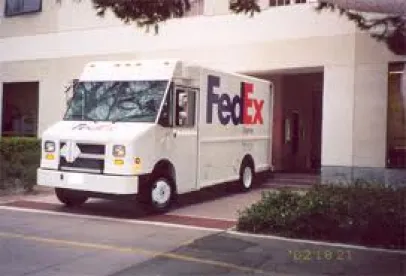On February 22, 2016, the First Circuit issued its decision in Schwann v. Fedex Ground Package System, Inc. This decision clarified the extent to which the Massachusetts Independent Contractor statute, G.L. c. 149 § 148B (“§ 148B”), as applied to motor carriers, is preempted by the Federal Aviation Administration Authorization Act of 1994, 49 U.S.C. § 14501(c)(1) (“FAAAA”). Schwann v. FedEx Ground Package Sys., 2016 U.S. App. LEXIS 3050 (1st Cir. Mass. Feb. 22, 2016).
In Schwann, the plaintiff delivery drivers alleged that FedEx had misclassified them as independent contractors under § 148B. That statute presumes that an individual “performing any service” is an employee unless the defendant can establish all of the following: (1) the individual is free from control and direction in connection with the performance of the service, both under his contract for the performance of service and in fact; (2) the service is performed outside the usual course of the business of the employer; and (3) the individual is customarily engaged in an independently established trade, occupation, profession or business of the same nature as that involved in the service performed.
Prong 2 of this test for contractor status is not applicable under most state wage laws. Under federal law and the law of most states, the relationship between the service performed and the usual course of the enterprise’s business is simply one factor among many to be considered, and oftentimes secondary to the level of control exerted over the service provider. As applied to motor carriers, Prong 2 essentially prohibits them from utilizing independent contractors to perform delivery services, regardless of how little control they assert over the individual, and regardless of whether that individual maintains his or her own independent business, unless delivery services are found not to be within the motor carrier’s “usual course of business”.
In Schwann, the First Circuit affirmed the District Court’s finding that Prong 2 was preempted by the FAAAA. The FAAAA preempts all state laws that “expressly reference”, or have a “significant impact on,” motor carriers’ prices, routes, or services.
The First Circuit found that Prong 2’s effective ban on the use of independent contractors in Massachusetts by motor carriers ran counter to the Congressional goal of avoiding “a patchwork of state service-determining laws, rules, and regulations” that were better left to the competitive marketplace.
Although the First Circuit found Prong 2 preempted, it reversed the District Court’s decision to preempt Prongs 1 and 3 of § 148B. The District Court reached that conclusion not based on a separate analysis of those Prongs, but because it found that Prong 2 was severable from the statute as a whole. Since FedEx had not argued separately for preemption of Prongs 1 and 3, the Court remanded the matter to the District Court for a determination of whether Plaintiffs could show that they were misclassified under either Prongs 1 or 3. The Court did not, however, express any opinion as to whether Prongs 1 or 3 would be found preempted if a defendant were to raise that argument.
Under this decision, delivery drivers in Massachusetts will no longer be able to rely on Prong 2’s “usual course of business” test to argue that they were misclassified by motor carriers utilizing them to make deliveries. This is a substantial victory for motor carriers, as Prong 2 was the most difficult for most defendants to satisfy (hence the First Circuit’s holding). Moreover, because Prong 2 focuses on the nature of the defendant’s business as a whole, a violation of Prong 2 was often found to be systemic, making certification of a class action in such cases more likely.
The First Circuit, however, did not hold that motor carriers are free to classify their drivers as independent contractors with impunity. Unless and until there is a separate finding that Prongs 1 and 3 are preempted by the FAAAA, motor carriers must still prove both that: (1) the individual is free from control and direction in connection with the performance of the service, both under his contract for the performance of service and in fact; and (2) the individual is customarily engaged in an independently established trade, occupation, profession or business of the same nature as that involved in the service performed. Motor carriers in the state must be mindful of these requirements and enter into agreements for services with delivery drivers based on the applicability of this modified test.




 />i
/>i

